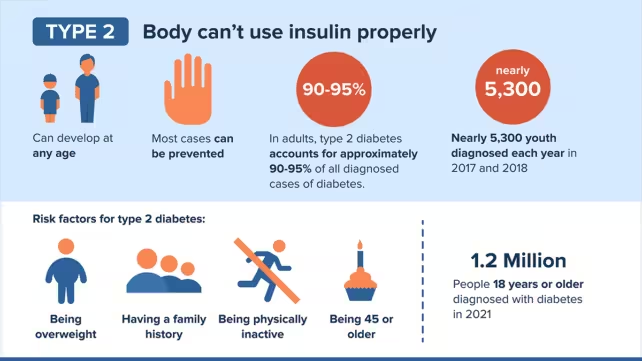5 Minutes
New Research Reveals Why Not All Sugars Are Equal in Diabetes Risk
How we consume sugar may make a significant difference to our long-term metabolic health, according to a comprehensive global study. While sugary foods are often grouped together as a diabetes risk, new evidence shows that drinking sugar-sweetened beverages, such as soft drinks and fruit juices, poses a considerably higher risk for developing type 2 diabetes than consuming similar amounts of sugar in solid forms.
Study Overview and Scientific Context
In a first-of-its-kind systematic review, researchers analyzed health data from more than 500,000 adults worldwide to investigate the relationships between various types and sources of sugar intake and the risk of type 2 diabetes—a chronic metabolic disorder characterized by insulin resistance and high blood sugar levels. The review considered not only different sugars, such as fructose, sucrose, and added sugars, but also examined the vehicles through which sugar is consumed, including sugar-sweetened beverages, fruit juice, and nutrient-dense foods.
Traditionally, public health messages have warned that all dietary sugars contribute equally to diabetes risk. However, according to Dr. Karen Della Corte, a nutritional scientist at Brigham Young University, the new evidence provides a more nuanced understanding. "This is the first study to draw clear dose-response relationships between different sugar sources and type 2 diabetes risk," Della Corte explains. "It highlights why drinking your sugar – whether from soda or juice – is more problematic for health than eating it."
Key Findings: Sugary Drinks Significantly Elevate Diabetes Risk
The research demonstrated a striking difference in diabetes risk depending on the type and source of sugar consumed. Notably, each additional daily serving of a sugar-sweetened beverage raised the risk of developing type 2 diabetes by 25%. For fruit juice, the risk rose by 5% per daily serving. These increases were observed even after adjusting for factors such as body mass index (BMI) and total energy intake, suggesting a direct metabolic impact of liquid sugars beyond their contribution to weight gain.
It's important to clarify, as the researchers note, that these are relative risks. For example, if a person's baseline risk of developing type 2 diabetes is 10%, consuming four sugar-sweetened drinks daily could raise this risk to approximately 20%.
By contrast, the review found that higher intake of total dietary sugar and sucrose was actually associated with a lower risk of type 2 diabetes. No statistically significant associations were identified for added sugar or fructose in isolation, highlighting the importance of context and how sugar is consumed.

Why Does Liquid Sugar Pose a Greater Threat?
The reasons why sugary drinks and fruit juices have a more profound impact on diabetes risk are not yet fully understood, but several key factors have been identified. Liquid sugars, such as those found in sodas and juices, enter the bloodstream rapidly and cause sharp spikes in blood glucose (a high glycemic impact), increasing the body's demand for insulin and potentially leading to insulin resistance over time.
In contrast, consuming sugar as part of whole foods—like fruits, dairy products, or whole grains—results in a slower absorption due to the presence of fiber, fats, and proteins. These nutrients help moderate the rise in blood glucose and support healthier metabolic responses. The study's authors emphasize that fruit juice, while often perceived as a healthy alternative, lacks the fiber of whole fruit and behaves metabolically more like a sugar-sweetened beverage than a fruit itself.
"The high sugar content and lack of fiber in fruit juice are similar to sugar-sweetened beverages, making it a poor substitute for whole fruits, which provide higher fiber content to support better blood glucose regulation," the authors write. This underscores the broader nutritional science consensus that fiber plays a protective role against rapid spikes in blood sugar.
Implications for Dietary Guidelines and Future Research
These results challenge the simplistic view that all sugars should be condemned equally and underscore the need for more targeted public health guidance. Experts suggest nutrition policies should focus not only on the amount of sugar, but also on the source and context of consumption. Integrating sugars into meals rich in nutrients, fiber, and protein may help achieve better metabolic outcomes than consuming isolated sugars in liquid form.
More research is warranted to unravel the physiological mechanisms behind these effects, especially to clarify why fruit juice—a seemingly natural choice—may be more detrimental to glucose regulation than eating whole fruit.
Conclusion
This landmark study sheds new light on the complex relationship between sugar consumption and diabetes risk, revealing that sugary drinks and fruit juices are particularly harmful compared to sugars consumed as part of whole foods. For public health professionals, healthcare providers, and individuals seeking to prevent type 2 diabetes, these findings highlight the importance of reducing intake of sugar-sweetened beverages and prioritizing nutrient-rich foods. As evidence evolves, nutrition advice will become increasingly nuanced—underscoring that how and what we eat is as important as how much.


Comments